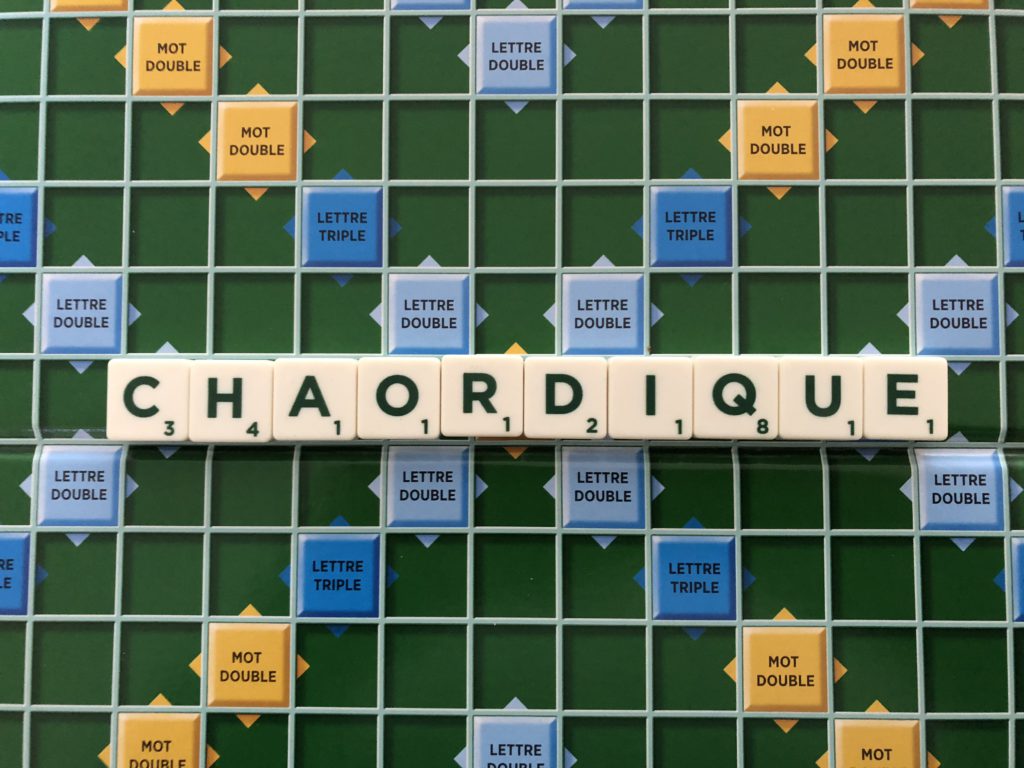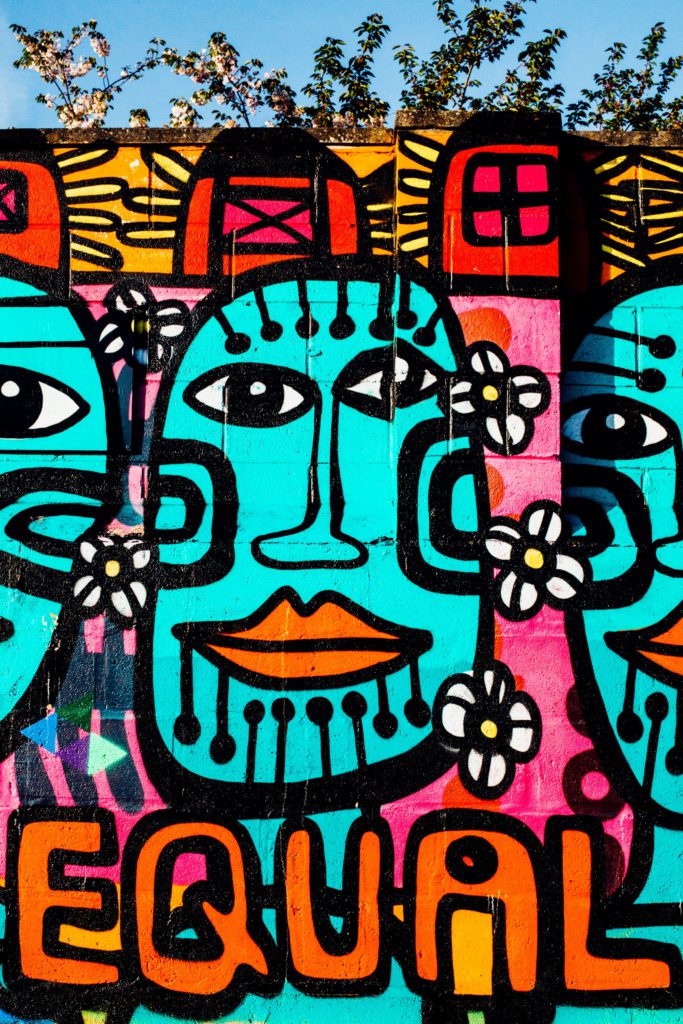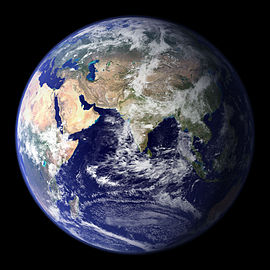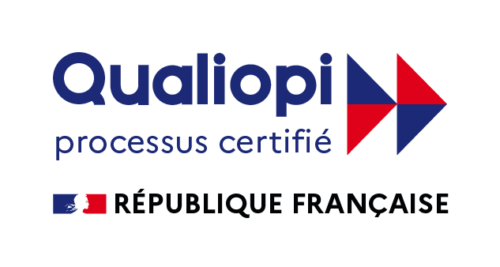To be or not to be “Chaordic”?

Answering this question has allowed me, in my professional experience, to envision and establish a Sales Academy for L'Oréal in over 75 countries with a minimum of resources. Incidentally, in French the ten letters of the word "chaordique" can also help you win a game of Scrabble by scoring 58 potential points, in English however, the word “chaordic” will not gain you many scrabble points!
Is there a relationship between Visa, the Internet, air traffic control and even the laws governing the evolution of life? And moreover, if such a relationship exists, how can it help me in my role as CEO, business creator or simply as a leader, and, this regardless of my responsibilities within the organisation?
Most of the time, we never invent anything new! More often than not we are faced with a challenge which appears insurmountable, we are then "inspired", and stimulated to do the "right thing" ... This is when the adventure of creation really begins, and most often when successful, it completely escapes its inventor – surpassing his wildest dreams. A great source of inspiration for me was Dee Hock, the founder of Visa.
After creating and leading the National Bank Americard Inc. (NBI) consortium, which brought together the first bank card network in the US, he left a blank page in the late 1970s to found and run Visa for over 20 years. Comprised of more than 21,000 companies, Visa now has over 2 billion licensees and the transactions generated exceed $3 trillion. In his book One from Many, Dee Hock describes the revolutionary principles and practices of the time (which incidentally more than ever are those of today) he developed with his teams and countless players in this fantastic entrepreneurial adventure. He created the term Chaordic (chaos/order) to describe the "self-organised and self-governed conduct of any organism, organisation, or system that harmoniously blends the characteristics of chaos and order." He is the perfect embodiment of the positive deviant. He is convinced of the organisational failure of the perfunctory command and control model that still prevails in most organisations – to adapt in order to survive – including in many companies which evolve from the digital revolution having progressed from the start-up phase.
This post is an opportunity to share with you my personal reflections and practices which are the fruit of the concept of chaordic, both in my 30 year career at L'Oréal and in my role as a Coach and Consultant.
Complexity
The term complexity was originally used in physics and biology. Today it is a truism in company jargon used to explain and justify a state of permanent tension, a sense of urgency for change, transformation, and to evolve in order to survive ... What was the order of the "complicated" has become "complex". The succession plans for change are often obsolete before being implemented. This is precisely because we must let go of the need to control a situation absolutely, or even conceal it (a fortiori when one is a shareholder), i.e. it is the unknown and the fears aroused in our brains which are naturally wired to predict the worst!
So within an organisation if we reflect a lot, we think little ... To paraphrase N. Hulot "to perpetually change the deckchairs on the deck of the Titanic" serves strategy and maintains the illusion that everything is under control. But off the shelf solutions are not the answer to the evolving complexities, nor are Powerpoint and Excel presentations to guide change and a summons or "order from above" even less so. What is needed is to break away from the classic binary approach of driving change as “being for”, or “being against” and instead learn how to work within the parameters of the actual situation with all parties involved relying on their strengths and a desire to “succeed together”. Being agile in space and time requires integrating new managerial behaviours where "letting go" can only be done through trust and by involving everyone in the search for a solution and above all in its implementation. This is one of the strengths promoted by the Appreciative Inquiry approach.
Questions :
- How does my organisation deal with complexity?
- How does this complexity manifest in my daily work?
- How much importance do I place on the need for order and how much can I leave to creative chaos?
Humility
The age of the visionary and omniscient Leader, who "knows where we’re going and how to get there" is over! Keeping this myth alive is at best irresponsible, at worst suicidal. Research within the context of Positive Organisational Psychology (POP), has established several models of leadership (transformational, subservient, meaningful, genuine ...). The key point they all agree on is that a positive leader must meet at least two criteria:
Someone with life experience (which has nothing to do with age), who is genuine (whatever the circumstances) and who possesses a balance between extrinsic and intrinsic motivation.
A relationship with others and the environment based on confidence in their colleagues’ abilities, the aptitude to give meaning, to mobilise one's emotions and those of others, empathy, positive communication and the ability to engender a positive environment, as well as listening, objectivity, benevolence and gratitude.
For Dee Hock, being humble does not mean giving up one's beliefs and expression, but instead considering one's role and contribution to a vision which transcends. This can only happen through collaboration, not enforcement.
Questions :
- Are the leaders in my organisation humble or are they victims of hubris syndrome
- Do they communicate meaning to me?
- Do I feel myself becoming part of the "collective"?
Attitude
Attitude refers to psychological disposition, in other words our state of mind when it comes to "engaging with, or not" in action in a given context. Our state of mind influences the way each of us views what we are responsible for, as well as our accountability in being part of the solution rather than contributing to the problem. A chaordic organisation promotes among its collaborators what Carol Dweck defines as a growth mindset, as opposed to a fixed state of mind. A developmental state of mind encourages a person to step out of their comfort zone, take risks and try new experiences, thus exceeding their limiting beliefs. A positive attitude to failure is crucial to fostering a culture of innovation and seizing the opportunity to learn and improve.
Questions :This triggers the tooltip
- What is my relationship to failure?
- Does my organisation encourage taking the initiative?
- Does it (really) allow one’s right to make mistakes?
Optimism
According to numerous Positive Psychology studies, the level of individual and collective optimism is a good predictor of employee performance and fulfilment. If optimism denotes a state of mind and a generally positive attitude towards the future, an optimist does not just expect positive results to fall from the sky, he has confidence in his ability to act and succeed now and in the future. Optimism is embraced because it depends less on what happens than on the perception and meaning we give to what happens. This is what Seligman calls the explanatory style and which unintentionally produces results from our self-fulfilling prophecies. It takes a good dose of optimism to embark on an innovative project and to foster this optimism in those who must contribute to its success ...
Questions :
- Am I an optimist?
- Does my organisation encourage optimism?
- How can I cultivate and convey an optimistic vision of the future?
Resilience
A fairly recent addition to corporate jargon, the term resilience defines the ability not only to cope with difficulties but to surpass them. At the individual level, resilience integrates a cognitive dimension (what I understand and think about the situation) and an emotional or affective dimension (how I feel and how I experience the situation). Like any skill, it is not fixed in stone and can be developed. This resource is all the more crucial as we navigate the uncertainty of tomorrow and the often contradictory constraints emerging from the growing complexity of organisations and the general environment. Accepting the share of chaos necessary for agility can only be done with the resilience of both the individual and the collective. The objective is not so much to avoid the inevitable crises, as to emerge stronger from them when they appear.
Questions :
- How good am I at bouncing back after a setback?
- Does my sense of belonging to my organisation make me stronger?
- What is the resilience of my organisation based on?
Diversity
The secret to the abundance of life is due in great part to its natural predisposition of creating diversity by using a trial-and-error method to promote the adaptation to the environment and circumstance. It is also this test & learn model which generates the startling success of start-ups where the energy of the initial chaos prevails over the order in the classical organisational model. In an organisation, there is a strong correlation between the diversity of a collective and its creativity. So Comex or Codir are based on co-optation, by producing more and more of the same thing because compliance trumps diversity ... it is true that in the short term, the need to reassure oneself by putting things in boxes and to apply the logic of rational reasoning is tempting. More tempting than rubbing shoulders with the diversity of viewpoints and endless possibilities offered by the wealth of unlimited human creative resources as long as we are open to them.
Questions :
- What is my relationship to diversity?
- Does my organisation encourage diversity?
- Does my organisation rely on its diversity to meet its challenges?
Intelligence
There should be more talk of the different forms of intelligence! In France the main criteria required to access the highest echelons has always been Cognitive Intelligence (CI) recognised by academic achievement. Thus in Descartes’ native country the supremacy of the rational has prevailed over the emotional. But everything is changing very quickly. Global competition, intensified by globalisation and the digital revolution, fosters new forms of intelligence in the organisations of the 21st century. Similar to the concept of Social Intelligence (SI), Emotional Intelligence (EI) documented in 1990 by psychologists Peter Salovey and John Mayer and popularised by Daniel Goleman, which refers to the ability to recognise, understand and master one’s own emotions and to cope with the emotions of others. At the heart of Visa International's success, Collective Intelligence is the shared intelligence which emerges from cognitive capacities of a community resulting from the multiple interactions between its members. In the age of the networked enterprise and surfing the digital wave, it is a guarantee of innovation, even disruption as evidenced by the emergence of crowdfunding through the Kiss Kiss Bank Bank adventure for example. Finally, with the emergence of Artificial Intelligence (AI) we can predict a quantum leap for better or for worse in the history of our species.
The search for meaning
According to a study conducted by Deloitte and Viadéo on the notion of the meaning of work, nearly 9 out of 10 employees consider it a major issue and 56% believe that this meaning has deteriorated, mainly due to lack of recognition. Thus, after the explosion of burnout (stress-related exhaustion), other syndromes of malaise at work have appeared such as bore-out (boredom burnout) or brown-out (loss of meaning at work). If the intention of the Pact Law on "mission-based companies" is laudable, it should not fall into “angelism” imagining that it will solve by magic what questions today the value of work itself. In this context, the manager is called to re-establish meaning to encourage commitment and creativity in the work of its employees. For, having lived a very long time, I know how the speech of a CEO focused on the figures and economic ratios of the company is reductive and does not contribute to creating meaning for his teams beyond the actual speech. According to Michel Serres "It's not the numbers or the graphs that make things move but emotions".
Questions :
- Does my job fill my need for meaning?
- How does my organisation give meaning to its achievements?
- How is this manifested tangibly?
Common Collective
Imagine a method of sales and commercial management operating on the 5 continents which takes into account the diversity of each situation and the complexity of the task, and leaves it mostly to the "intelligence of the field". This could only be envisaged by updating the essential shared base.
The idea is of a "common theory" that leaves room for interpretation and enrichment by each individual and evolves organically to the rhythm of business. It is perhaps at this level that the chaordic concept has been most effective for me personally in the design and in particular in the launch of the L'Oreal Sales Academy (LSA) on a global scale. More generally, Barbara Fredricksons' research on positive emotions illustrates how universal these are, although their expression and the value given to them may vary according to culture. Nevertheless, it is this emotional dimension that is at the heart of employee engagement and performance. What is universal is the need and the desire to learn, to go beyond our limits and to be open to new possibilities.
Questions :
- What is my relationship to the common collective?
- Does my organisation nurture my need for belonging?
- What do I continue to learn?
Empathy
For psychologists Decety and Yoder, empathy is "a multifaceted concept used to account for the ability to share and understand the thoughts and feelings of others”. An individual’s emotional dimension captures the nuances and intensity of others' emotions, whilst their cognitive dimension helps us to consciously put ourselves in someone else’s shoes to understand what they are thinking and feeling. Empathy is now very popular in the business environment and individuals and businesses are beginning to understand its benefits. Many studies show that an empathic stance towards an organisation's employees promotes success and well-being at work. My 29 years corporate experience and today as a Coach and Consultant, tend to allow me to think that lack of empathy is ultimately what ruins most major transformational projects. Empathy goes hand in hand with trust and it takes time, time that an organisation too rarely allows, thinking instead that the solution to the problem is to go faster. Unfortunately, the "problem" rarely takes the same form for each of the stakeholders, and therefore the time saved by not sharing everyone’s point of view is considered time lost in implementing change. Richard Davidson, the affective neuroscience researcher, says that empathy is learned and practiced by meditation practices and the development of the feeling of gratitude. This is rather good news at a time when we are facing economic, climate and social challenges on an unparalleled scale and which are the source of major conflicts. In this context, the development of empathy should be considered the business of public safety because more so than ever the world needs more trust and cooperation in order to hope for a positive future.
Questions :
- Is empathy natural to me or is it a mystery?
- How can I develop my empathy in the professional setting?
- Does my organisation promote empathy between colleagues?
"Once you understand that you and your organisation are inseparable (since every organisation exists only in your mind), then the idea of transformation at an individual only or an organisation only level no longer makes sense, and that one cannot take place without the other. Both are necessary. "
These words of Dee Hock summarise to me pretty well his vision of the revolution necessary to adapt our organisations and their governance to the challenges they face. To give oneself a collective chance to meet them imposes on each individual level the transition from the role of spectator to that of "performer of one’s own transformation".
And you? Are you a performer or a spectator?
And if by chance you'd have to play Scrabble in France, don’t forget that with a triple word count, Chaordique can even score you 174 points!











Great article !